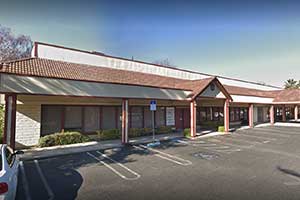Skip To Rehab Listing
Alcohol and Drug Rehab Settings and Modalities in Oakdale
Alcohol and drug abuse affects people of all genders, ages and walks of life. The substance abuse treatment centers and resources, such as short term rehab facilities, inpatient drug rehab centers, outpatient day treatment, long term drug rehab centers, inpatient detox programs, are designed to offer high-quality care to anyone who has a problem with substance abuse, no matter their personal circumstance.
Addiction treatment centers in the Oakdale area are not all the same. They offer a range of approaches, such as behavior modification, anger management, activity therapy, rational emotive behavioral therapy, relapse prevention, matrix model, that enable patients to face their addiction in the way that is most effective for them.
Special Services for Substance Abuse Treatment
In spite of the widespread presence of addiction, each individual who struggles with alcohol and drug addiction problems has their own specific circumstances that need an individualized strategy. That is why the treatment programs in Oakdale provide a number of special resources such as programs for the hearing impaired, legal advocacy, co-occurring mental and substance abuse disorders, seniors or older adults, persons who have experienced sexual abuse, clients with HIV/AIDS.
Accepted Rehab Payment Options
Clients and their loved ones should not defer rehab because of worries about expense. Rehabilitation centers provide various possibilities for payment, like the following: cash or self-payment, private medical insurance, sliding fee scale, military insurance, state education funds, county or local government funds. Drug and alcohol treatment facilities can guide patients and their families toward the payment plans that will put treatment within their reach.
Individuals who struggle with drug and alcohol abuse should not hesitate to access the many services available in Oakdale, CA..
Commonly Asked Questions about Addiction and Treatment
How to deal with a brother or sister addicted to drugs?
"Dealing with a sibling addicted to drugs is challenging and often emotionally draining. Here are several strategies to consider when navigating this difficult situation:
Education: The first step is to educate yourself about addiction. Understanding that addiction is a chronic disease can help you comprehend the struggles your sibling is going through.
Communication: Open lines of communication with your sibling. Speak honestly about your concerns, but avoid judgmental language. Express your love and concern rather than blame and anger.
Support, Don't Enable: It's important to support your sibling without enabling their addiction. This means helping them in ways that promote recovery, such as providing emotional support or helping them access treatment, but not shielding them from the consequences of their actions.
Encourage Treatment: Advocate for your sibling to seek professional help. This could be a rehab facility, outpatient treatment, therapy, or 12-step programs. Offer to accompany them to appointments or meetings if they are comfortable with it.
Take Care of Yourself: Living with a sibling's addiction can be emotionally taxing. It's crucial to take care of your mental and emotional health too. Seek support from friends, family, or support groups. Professional help, such as therapy or counseling, can also be very beneficial.
Set Boundaries: It's necessary to set boundaries with your sibling to protect your own well-being. This might include rules about drug use in your home or not providing money that could be used to buy drugs.
Patience and Persistence: Recovery is a long process and relapses can occur. It's important to stay patient and persistent, and to maintain hope for your sibling's recovery.
Involve a Professional: If you're finding it hard to get through to your sibling, consider staging an intervention with the help of a professional counselor or intervention specialist.
Practice Compassion: It's essential to remember that your sibling is battling a disease. Stay compassionate and understanding, and remind them that they are loved and valued regardless of their struggle with addiction.
What to do if someone has a fentanyl overdose?
Fentanyl overdose is a life-threatening emergency that requires immediate action. Here are the steps you should take:
- Recognize the Signs: Common signs of a fentanyl overdose include slow or irregular breathing, drowsiness or unresponsiveness, constricted or pinpoint pupils, and cold and clammy skin.
- Call Emergency Services: Dial your country's emergency number (911 in the U.S) immediately. Explain the situation clearly and provide any known information about the person's drug use.
- Administer Naloxone if Available: Naloxone is a medication that can reverse the effects of an opioid overdose. If you have access to this medication, administer it according to the instructions, usually a spray in the nostril or an injection under the skin or into the muscle.
- Perform Rescue Breathing or CPR: If the person isn't breathing or has shallow breathing, start doing chest compressions and rescue breathing if you're trained to do so.
- Stay Until Help Arrives: Do not leave the person alone. Stay with them and try to keep them awake and responsive if possible.
- Provide Information: When emergency responders arrive, provide them with as much information as possible about the situation, including the person's age, weight, the drug they took, when they took it, and any underlying health conditions they might have.
Can I successfully get treatment for my addiction to alcohol on an outpatient basis?
"Yes, it is possible to successfully receive treatment for alcohol addiction on an outpatient basis. Outpatient treatment programs can be an effective and flexible option for individuals who cannot commit to inpatient or residential programs due to work, family, or other responsibilities. However, the success of outpatient treatment largely depends on the individual's motivation, support system, and the severity of their addiction. While outpatient treatment can be successful for many individuals, it may not be suitable for everyone. Those with severe alcohol addiction, a history of relapse, or co-occurring mental health disorders may require more intensive inpatient or residential treatment to ensure their safety and promote lasting recovery.
Ultimately, the success of outpatient treatment for alcohol addiction depends on the individual's commitment, the support of their family and friends, and the quality of the treatment program. It is essential to choose a reputable and evidence-based outpatient program and to be fully engaged in the recovery process for the best possible outcome."













